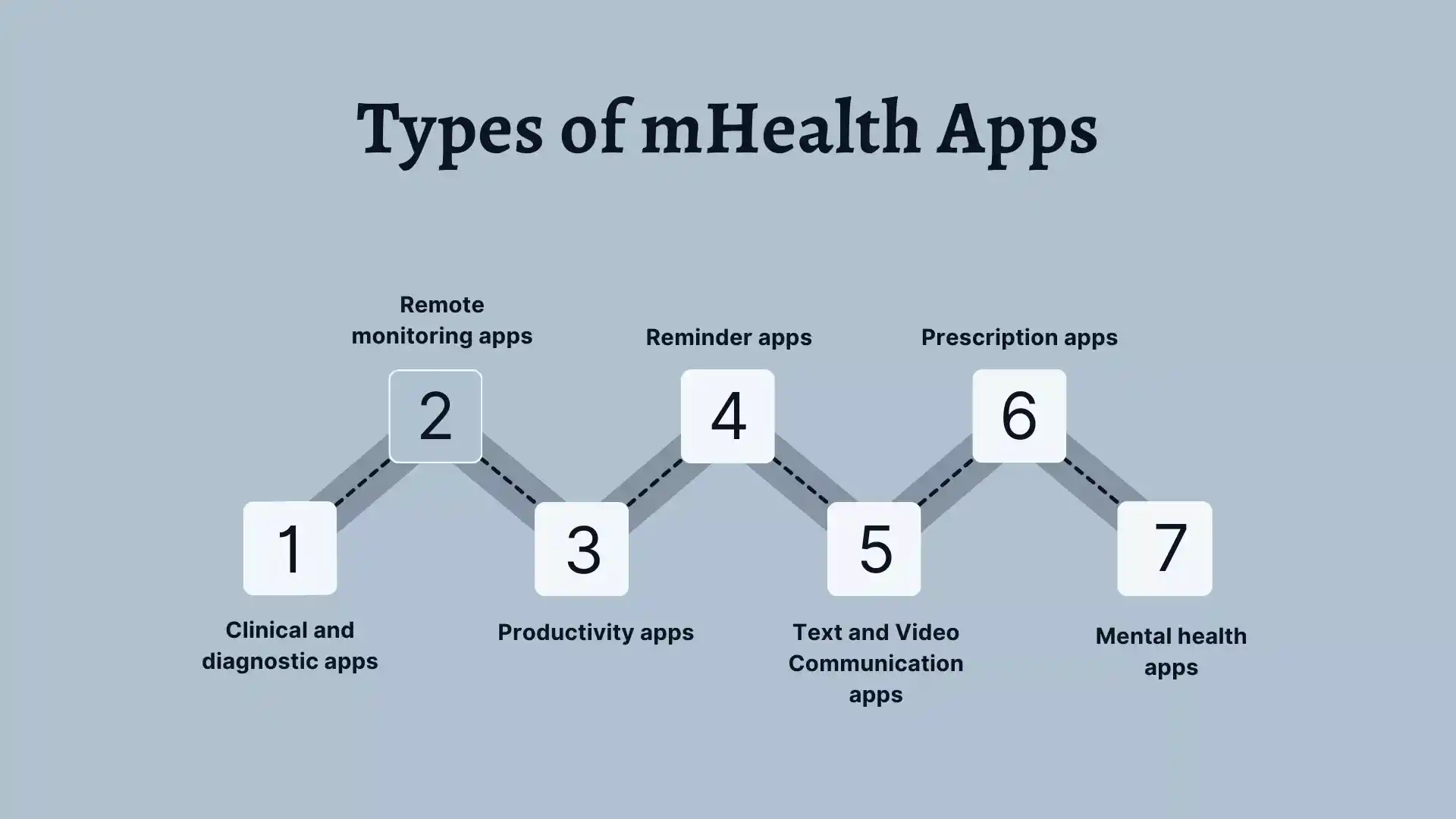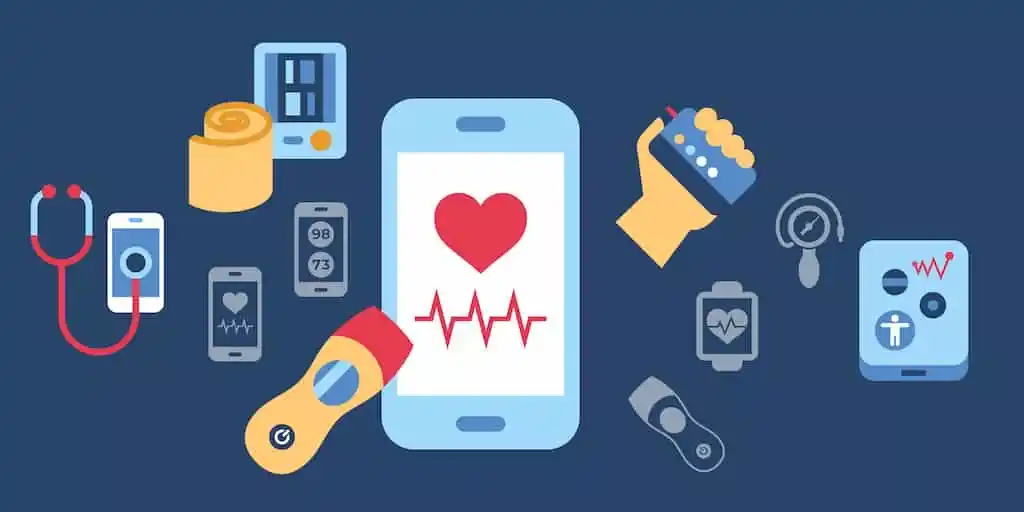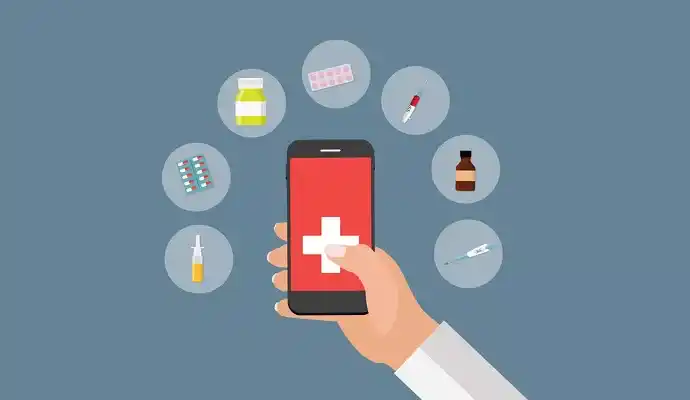Table of Contents
In today’s fast-paced world, the demand for efficient and accessible healthcare solutions has led to the emergence of various types of mHealth apps. These innovative applications offer a multitude of benefits, catering to different aspects of our well-being. From fitness tracking and nutrition management to mental health support and chronic disease management, mHealth apps have revolutionized how we approach our health goals.
In this comprehensive guide, readers will delve into seven powerful types of mHealth apps meticulously crafted to enhance lifestyle. Whether individuals are seeking to boost their fitness levels, improve sleep quality, or manage stress more effectively, there’s a tailored mHealth solution to suit their needs.
Exploring the diverse landscape of mHealth technology, readers will discover how these apps can empower them to live a healthier, happier life.
Diverse Types of mHealth Apps
In the vast market of mHealth apps, new creations emerge daily, expanding the array of options available. These applications are typically categorized into various types of mHealth apps, each designed to address specific health and wellness needs.

1. Clinical and diagnostic apps
Clinical and diagnostic apps are essential in modern healthcare, enabling data collection, analysis, and sharing among medical professionals. These applications streamline diagnostic processes by granting access to lab results, health records, and imaging tools, benefiting both patients and doctors. Symptom checking and illness diagnosis features enhance healthcare delivery, fostering efficiency. Among types of mHealth apps, clinical and diagnostic applications play a crucial role.
VisualDx, for instance, offers an extensive database aiding professionals in diagnosing conditions. Users input symptoms and history, generating potential diagnoses for accurate decision-making. Leveraging technology, such apps enhance diagnostic precision and patient care in clinical settings.
2. Remote monitoring apps
Remote monitoring apps are transforming healthcare delivery, providing virtual care from home. These apps empower practitioners to remotely monitor vital signs like heart rate, oxygen levels, and blood pressure, improving patient care sans frequent hospital visits. Integrating such apps into hospital services is crucial.
Among types of mHealth apps, “Apple Health” stands out, tracking diverse metrics from heart rate to sleep patterns. Specialized apps like “Cardiogram” for heart health and “Sleep Cycle” for sleep tracking offer tailored solutions. Users can monitor their health remotely, sharing data with healthcare professionals for enhanced management and care, marking a significant shift in healthcare paradigms.
3. Productivity apps
Productivity apps are essential in healthcare, revolutionizing workflows for providers. Designed for efficiency, they streamline scheduling, charting, and dictation within HIPAA-compliant environments. These types of mHealth apps are indispensable for delivering quality care anytime, anywhere.
One standout example is “Doximity,” tailored for healthcare professionals. It provides HIPAA-compliant messaging, medical news updates, CME opportunities, and tools for scheduling appointments and managing patient information. Its versatile functionalities cater to the diverse needs of healthcare providers, ensuring seamless communication and organization in delivering optimal patient care.
4. Reminder apps

In the realm of mHealth, reminder apps emerge as indispensable tools, ensuring patients maintain appointments and medication schedules without fail. Whether integrated within larger platforms or operating independently like RevSpring Patient Connect, these apps provide tailored reminders, appointment specifics, and confirmation functionalities. They prioritize patient adherence, facilitating seamless communication with healthcare providers, and ultimately enhancing healthcare management.
Medisafe, a renowned mHealth application, effectively manages medication schedules by sending timely reminders, monitoring adherence, and offering additional features such as pill identification and interaction checking. Its primary objective is to bolster medication adherence and improve health outcomes, serving as a pivotal component in the spectrum of mHealth applications.
5. Text and Video Communication apps
The pandemic highlighted the significance of text and video communication apps in healthcare. These platforms enable smooth patient-caregiver interaction, elevating healthcare accessibility and quality. From text-based consultations to live video conferencing, mHealth apps keep individuals connected with providers, ensuring timely support and treatment efficacy.
“Teladoc Health” stands out as a favored mHealth app for text and video communication. Offering virtual healthcare services, it facilitates text messaging and video consultations with professionals. Patients can access medical advice and care remotely, experiencing the benefits of modern healthcare delivery firsthand.
6. Prescription apps
Prescription apps are transforming healthcare, offering tailored medications and dosages, and ensuring patient safety and adherence. These tools empower physicians and monitor treatment effectiveness remotely. Patients benefit from personalized care, minimizing side effects and optimizing outcomes.
“DrFirst” is a widely used mHealth app for prescriptions. It enables healthcare providers to prescribe medications directly to pharmacies from mobile devices electronically. This streamlines the process, enhancing accuracy, and improving safety by reducing errors associated with paper-based prescriptions. DrFirst and similar apps exemplify mHealth technology advancements, revolutionizing how prescriptions are managed and enhancing patient care.
7. Mental health apps
In the realm of mental health, mHealth apps are reshaping therapy accessibility, flexibility, and efficacy. These innovative tools address depression, stress, anxiety, and sleep concerns through diverse features. From pre-recorded meditations to breathing exercises and gamified elements, they offer multifaceted approaches to wellness.
Discover the varied types of mHealth apps tailored for mental well-being, empowering users to prioritize their mental health on the go.

Among these, “Headspace” stands out, offering guided meditations, mindfulness exercises, and sleep aids for stress and anxiety management. Similarly, “Calm” provides guided meditations, breathing exercises, and soothing music to foster relaxation and alleviate stress.
Wrapping Up the Types of mHealth Apps
The vast array of mHealth apps offers an unparalleled opportunity to enhance every aspect of our lifestyle. These seven powerful types of mHealth apps serve as invaluable tools in our journey toward optimal well-being.
Whether it’s monitoring fitness goals, managing stress levels, or fostering mindfulness, the diverse range of options ensures that there’s something for everyone. Embrace the transformative potential of these apps and unlock new dimensions of health and happiness in your life today. Discover the possibilities with types of mHealth apps.